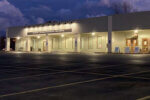Thousands of Amerasian children were abandoned when the U.S. military pulled out, and Christians are facing the cleanup
Chris and his brother live with their mother, a former bar girl in Angeles City, Philippines. Twice she became pregnant by American servicemen, one an African American, one a Caucasian. She has watched Chris, her son of the African American father, endure a lifetime of harassment.
“My children became aware that they were different when they started to go to school and the other kids began to ask them why they were black or white and not brown,” she explained.
Some 52,000 Filipino Amerasians (American Asians) suffer racial discrimination in the Philippines because of their mixed Filipino and American parentage. Many of them are the children of American servicemen who patronized the numerous night spots surrounding the U.S. military bases that until recently were part of the American presence in Philippine culture.
When the Philippine Congress declined to renew the U.S. military’s leases in 1992, the bases in the Philippines were closed, and the military pulled out, taking almost everything with them, according to one newspaper report.
Very little was left behind, except for the majority of the Amerasian children. In Olongapo City, site of the former Subic Naval Base, some 8,600 Amerasian kids were abandoned by their fathers. To this day, these children, their mothers and other caregivers are denied assistance from the United States, according to an Amerasian advocacy group.
Most Amerasians want to see their fathers, but only to establish roots and to ask for financial support. It is rare that American military men claim and search for their children.
Though the U.S. government did much to help their Indochinese counterparts from Vietnam and other Asian nations by giving them considerable aid and accepting large numbers of immigrants to America, Filipino Amerasian children have been doubly abandoned.
The Amerasian Immigration Act of 1982–which allows Amerasians from Thailand, Korea, Vietnam, Laos and Kampuchea to immigrate to the United States–excludes Filipino Amerasians because the Philippines wasn’t a war zone from 1960-1982, the period covered by the act.
There are, however, 12 nongovernmental agencies that provide services to Amerasians under the program, titled “Agencies Collaborating Together With Amerasians and Their Families.”
Despite this help, there is a tremendous amount of anger and frustration among Amerasians. The absence of a father creates feelings of rejection, abandonment, deprivation and shame. Many Filipino Amerasian children suffer verbal and physical abuse from their schoolmates, families and teachers.
Recently, churches and other Christian organizations in the Philippines have been reaching out to these fatherless children. For example, when Bessie, the adoptive mother of two Amerasian sons, heard about a party for Amerasians sponsored by a church in Angeles City she went to the party and took both her boys.
Bessie first came to Angeles City, home to Clark Air Base, in 1972, looking for work. She was employed by a local nightclub and soon married an African American serviceman. The marriage lasted three years, and then she was back in the bars.
After the departure of U.S. military personnel, Bessie adopted two children who had been abandoned by their African American fathers. Bessie’s sons struggled with their fatherlessness and with the discrimination they suffered daily. However, when their mom took them to the church party their lives changed.
“When I heard of a party for Amerasians in the church of Roy Humphrey, a former military man who oversees a church ministry, I went with my boys,” Bessie said. “We were introduced to the brand new life in Jesus. From managing bar girls, I am now a caretaker in the church.”
Richard, the older of Bessie’s two boys, used to drink and hang out with a gang, but now he is more hopeful about his future.
“I am on my third year in high school, thanks to the help of the church who found sponsors for me to continue my education. I also found a new family in God’s people,” he said.
The church–Church of God in Angeles City–built a home for street kids, a large number of whom are the abandoned children of American servicemen.
Says Bong Tiru, pastor of the church: “These kids, particularly the Amerasians, run away from home and find some of their needs met in the streets by people who give them food and money. These kids are confused. They need a sense of belonging.”






Leave a Comment
You must be logged in to post a comment.